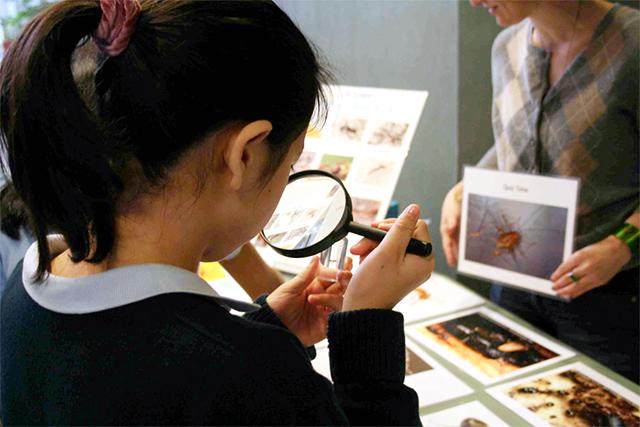The National Science Foundation awarded Rob Dunn, an associate professor of biology at N.C. State, and his lab group a $7.3 million grant to recruit 10,000 teachers worldwide to participate in a five-year citizen science, or amateur researchers, initiative. It will bring teachers and their students together to do original scientific research and make their own discoveries.
Dunn will serve as the principal investigator of the grant, which will be an extension of a program he cultivated at the University, called Your Wild Life.
Holly Menninger, director of public science of Your Wild Life, said the grant will bring together organizations from across the state. Among others, it will include the Kenan Fellows Program, which is a teaching fellows program, The Friday Institute, The Science House and the N.C. Museum of Natural Sciences.
Starting in summer 2014, the N.C. Museum of Natural Sciences will use the NSF funding to hire four new post-doctoral researchers to work together with teachers from the Kenan Fellows program. They will develop course modules that will be used in middle schools in North Carolina and other schools worldwide.
Seven school districts in the state will participate in the development of curriculum and programs that help bring the citizen science modules alive for students and teachers.
Wake, Alamance-Burlington and Pender counties will develop and refine model programs that use the citizen science modules to support students working to build critical skills in summer bridge programs.
In addition, teachers from these districts, as well as educators from Duplin, Durham, Madison and Pitt counties, will be recruited to serve as Kenan Fellows for the five-year project.
These teachers will work together to develop curriculum modules, will test and refine them, and assist in training groups of teachers to successfully use the activities in their classes.
“The big thing we’re aiming for is to recruit 10,000 teachers,” Menninger said. “But mainly it will be to allow students to bring real science into the classroom, not just demo science, but students making real discoveries.”
The lab group plans to bring educators together by getting the message out through blogs, news coverage and social media.
“We’ve long had a number of educators out there reach out to us, people who’ve been really eager to bring what we do into their classroom, and we’re hoping they’ll spread the word,” Menninger said.
The Your Wild Life program received national media attention and worked with tens of thousands of citizen scientists of all ages in projects such as School of Ants, which studied the biodiversity of ants all around the world.
Another project, called Belly Button Biodiversity, had amateur researchers look at skin microbes that lived in their belly buttons.
“With those projects, we were able to reach a very wide audience and something very exciting was going on,” Menninger said. “The public was really eager to get involved with scientific research—particularly those which involved biodiversity in their daily lives, in their body, in their homes and in their backyards.”
Jenifer Corn, adjunct assistant professor in the college of education, will serve as one of the key project leaders, and will lead the program’s evaluation standards.
According to Corn, the challenges of the program will be fitting different modules to unique students, noting differences based not just on location, but socioeconomic statuses and previous exposure to science and inquiry based education.
Corn said an important part of her job will be to observe what happens “when you have something designed by educators and scientists here in North Carolina and take it to Australia,” and decide “what critical components make it a positive learning experience.”
To learn more about how to involved or register for the “citizen science” program, visit http://education.yourwildlife.org/








